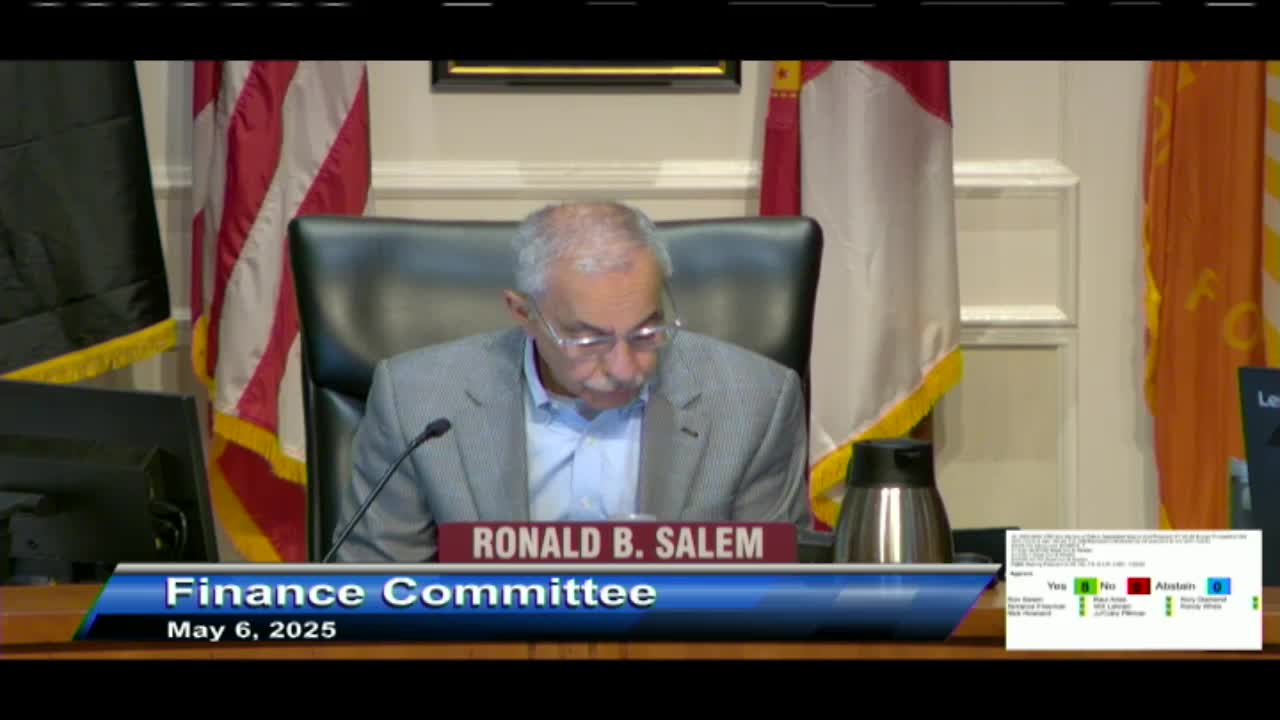Finance committee approves WJCT lease amendment, including $30,000-a-year payment tied to construction disruption
Get AI-powered insights, summaries, and transcripts
Subscribe
Summary
The committee approved amendments and the ordinance (No. 25-256) that extend a $30,000 annual payment to WJCT for 10 years to compensate for disruption related to construction that will affect WJCT property; vote was 7–1.
The Jacksonville City Council Finance Committee on May 6 approved amendments and the ordinance identified in the agenda as item 25‑256 that adjust the lease agreement with public broadcaster WJCT and include a $30,000 annual disbursement tied to disruptions from planned city construction.
David McGowan, chief executive of WJCT, told the committee WJCT had negotiated for more than three years with multiple city departments to allow construction to begin and that the organization agreed “in good faith to allow the construction to begin in April” after discussions about penalties if work did not start. McGowan said the station hosts more than 100 public events and that the negotiated agreements are intended to allow construction to proceed.
City staff described the legal and funding history around the property. “When we took that money, we recorded a restrictive covenant that lasts in perpetuity that gives the Department of Housing and Urban Development say over when and how we could ever sell the property,” a city representative said, and staff also said the state provided a grant in 1977 to the parent company of WJCT to build the facility. Staff described a 99‑year lease that allows certain sublease and use rights and said that, under the existing agreements, the city must seek state and federal approvals to alter the long‑standing arrangements.
Council members debated whether the $30,000 annual payment—already in the lease and set to run through 2027—should be extended for an additional 10 years. Supporters said the payment compensates WJCT for disruption and is part of negotiated consideration to allow the city to dig up part of WJCT’s parking area to install utilities and allow construction of Festival Park Avenue and a marine fire terminal. Opponents argued the annual payment should be decided through the city budget process or borne by the Downtown Investment Authority rather than locked into a long lease amendment.
Council Member Rory Diamond said the $30,000 payment was “ridiculous” and argued the nonprofit should not be given the amount under threat of impeding construction; other council members said the payment is tied to past agreements and to the city’s need to access and modify the property to build public infrastructure.
After debate and several procedural amendments, the committee approved the Neighborhoods Amendment and the ordinance as amended. The recorded vote was 7 yeas and 1 nay.
